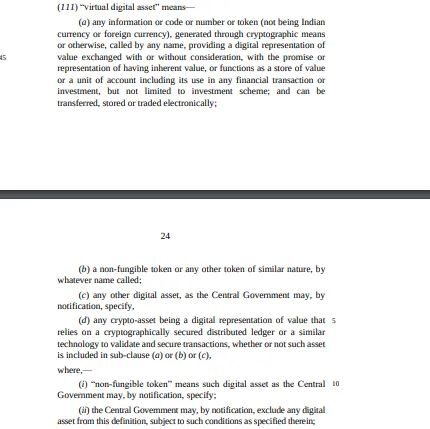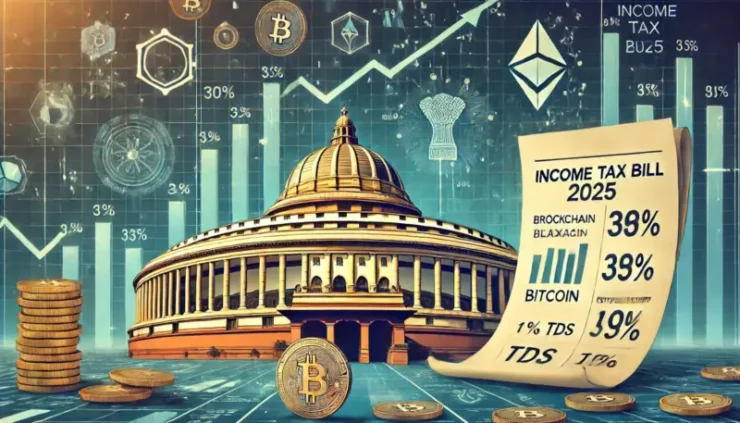Union Finance Minister Nirmala Sitharaman introduced the Income Tax Bill 2025 in the Lok Sabha on February 13, reinforcing India’s stringent taxation framework on virtual digital assets.
The proposed legislation maintains the 30 percent tax on gains from cryptocurrency and non-fungible tokens, a policy first implemented under Section 115BBH of the Income Tax Act, 1961. The bill also introduces real-time tax deduction at source mechanisms, requiring tax to be collected at the point of transaction to enhance compliance.
Stricter Taxation on Crypto and NFTs

The legislation continues to classify gains from cryptoassets and NFTs under the highest tax bracket, reaffirming the government’s position that these digital assets are speculative investments rather than financial instruments. Unlike traditional assets, losses incurred from trading virtual digital assets cannot be carried forward to offset future gains, a measure aimed at discouraging risky trading behavior.
In addition to the existing tax framework, the bill increases oversight on digital transactions. Clause 509(1) mandates that cryptocurrency exchanges report all transactions within a stipulated timeframe, with penalties for non-compliance. The move signals a stronger regulatory grip on digital financial activities, aligning with the government’s broader goal of curbing unregulated crypto investments.
Real-Time TDS and Compliance Measures
The introduction of real-time tax deduction at source provisions is a significant shift in how the government plans to regulate the sector. Under the new rules, a one percent tax applies to every transfer of virtual digital assets, including NFTs, without any exemption threshold. This ensures that every transaction involving digital assets is subject to taxation. Additionally, any e-commerce platform facilitating the sale or service of digital assets is required to deduct tax at source at a rate of 0.1 percent on the gross transaction amount. This mechanism aims to ensure that tax liabilities are settled upfront, reducing the scope for tax evasion.
The bill also restricts deductions related to digital asset transactions, allowing only the cost of acquisition to be accounted for when determining taxable income. Expenses incurred in connection with these transactions cannot be deducted, and losses from such investments cannot be carried forward, effectively limiting any avenues for reducing tax liabilities. The scope of virtual digital assets has also been expanded, empowering the central government to update the definition as new types of digital tokens emerge.
By maintaining a strict tax framework and increasing compliance measures, the government is reinforcing its cautious stance on cryptocurrency and NFTs. These measures are set to come into effect next year, significantly impacting digital asset traders, investors, and platforms navigating India’s evolving regulatory environment.





